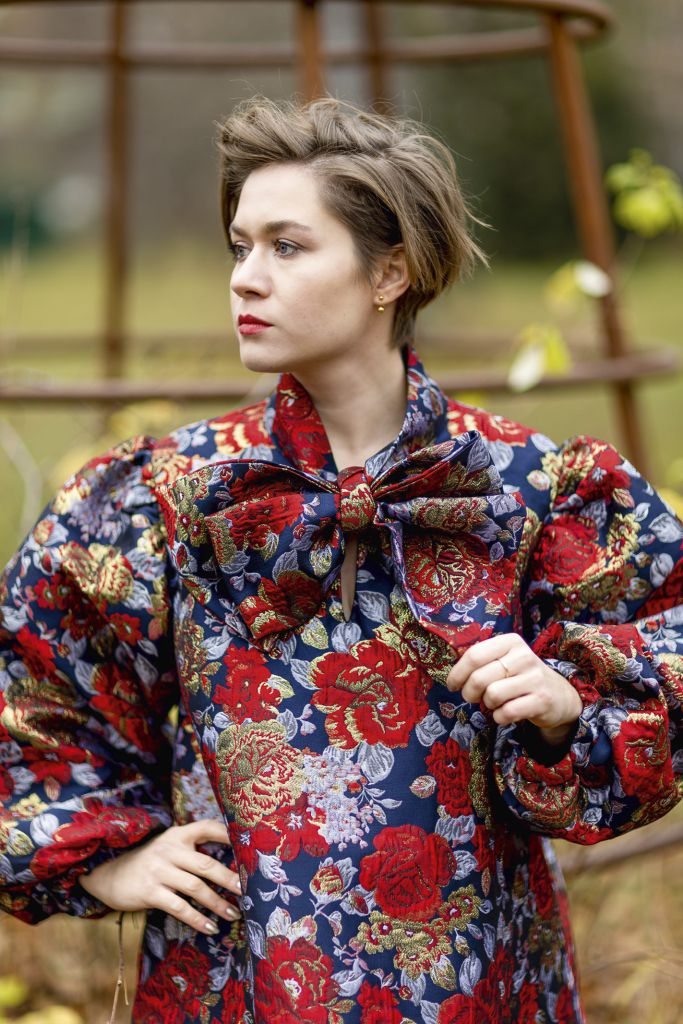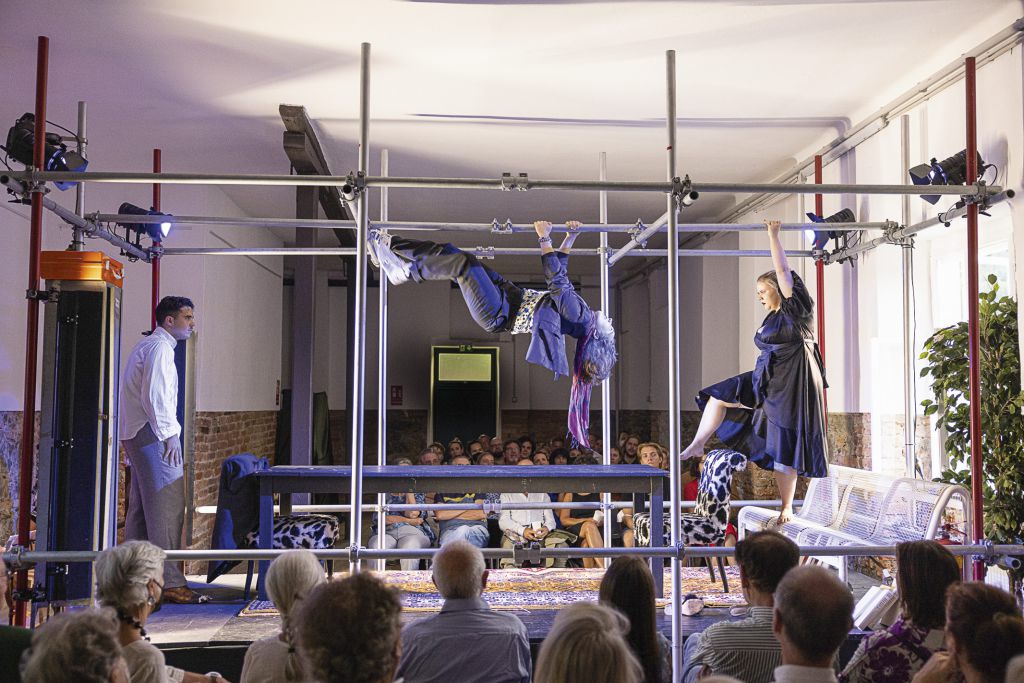“It’s the source of my energy and existence—I wouldn’t ever want to do anything else, not even if I had a thousand options to choose from.” When Ira Süssenbach talks about her work as a stage director, her love of theatre is downright palpable. This fourth-year stage directing student at the Max Reinhardt Seminar spoke with mdw Magazine about her diploma production and how her professional experience in the financial industry is now yielding rewards in her work as an artist.
Ira Süssenbach, who was born in Krasnoyarsk in 1992, moved to Moscow with her parents when she was four years old. Even while still at her secondary school, which featured an emphasis on the German language, she motivated her fellow students to do theatre—such as by giving in-class theatrical performances of texts and dialogues that they’d authored themselves. By her teenage years, Süssenbach already knew that she wanted to become a stage director—but her parents wanted their daughter to pursue a career in business. She eventually acceded to this wish and studied economics in Moscow. After earning a bachelor’s degree there, she began a master’s degree programme in financial mathematics at the Vienna University of Economics and Business. Vienna had been a logical please for her to go, since she’d always felt “an attraction to Vienna that can’t be clearly explained”. She ended up entering the financial industry and spent six years working as a risk manager. But all the while, her urge to pursue her dream career as a stage director remained quite alive—and in 2019, having overcome the bureaucratic hurdles to attaining permanent resident status in Austria, she turned her back on the banking world and took the entrance exam at the Max Reinhardt Seminar, to which she was admitted on her first attempt. “It was the right point in time to start, and all of the experiences I’d gathered up to that point proved very useful in my stage directing studies,” says Süssenbach. Her decision to leave Russia likewise proved to be a good one in view of the political situation and the resulting impossibility of free and critical theatrical work in that country: “It was clear to me at quite an early date that I’d be compelled to either fight the political system and wind up in prison or leave the country and seek out a society compatible with my values.”

For her diploma production, which will go onstage this November, she chose Sławomir Mrożek’s The Slaughterhouse (Der Schlachthof). The process by which she decided on what play she’d stage for her diploma proved instructive. Her initial choice had been Alexander Griboyedov’s Woe from Wit (Verstand schafft Leiden), Russia’s most-performed theatrical comedy. For most stage directors, this work represents a brilliant capstone on their directing careers by virtue of the material’s breadth and complexity. Süssenbach went so far as to prepare a cut version—but in the dialogue that unfolded with her teachers, she came to the conclusion that the version she’d produced wouldn’t work as her diploma production. Dramaturgy professor Peter Roessler then made her aware of the polish author and dramatist Sławomir Mrożek (1930–2013). “The Slaughterhouse is an absurd play that shows unfree life in a totalitarian society on the level of metaphor. For Mrożek, this lack of freedom begins within the family,” explains Süssenbach.
It’s during their second semester of study that Max Reinhardt Seminar directing students begin staging plays. As part of directing practicums, pre-diploma productions, and cooperative programmes with theatres such as the Burgtheater, students acquire the networks they need in order to form their production teams. Casting draws on the Max Reinhardt Seminar’s acting students, who are joined by team members specialised in stage design, costumes, sound, light, and dramaturgy as well as director’s assistants. “One huge advantage of studying at the Max Reinhardt Seminar is that the step-by-step curriculum here provides you with process-related knowledge that enables you to feel secure by the time you mount your diploma production,” she says. Süssenbach describes the creative freedom enjoyed during one’s studies and the support provided by teachers as quite individual: “Students can make their own decisions about how much faculty supervision they want. In Anna Maria Krassnigg’s directing class, I’d say that her approach is to support students’ self-realisation with valuable feedback. And for me, as a woman, being guided by another woman in this male-dominated profession also represents a formative experience.”
Süssenbach picked up additional directing experience while staging Das Erdbeben-Concerto (The Earthquake Concerto) at isa – the International Summer Academy of the mdw. This play by George Tabori was performed in August 2022 at the Gerhardthof in Reichenau an der Rax with Max Reinhardt Seminar actors and the Rubrik Quartet, whose members were isa students. “Its material grapples with emotional abysses and existential pain. But at the same time, it’s also a hilarious comedy. This kind of painful laughter is something I find extremely interesting in a play,” says Süssenbach.
In her work, she’s taken to heart a tip that she received from her directing instructors: “You have to grant your team love and trust!” Of course, granting actors the greatest possible degree of freedom in lieu of precise direction does entail a certain degree of risk. She views this as an advantage, however: “As a former risk manager, I know that more risk makes possible more reward.” Her main priority is therefore to create a framework for her team within which all of them can proceed with maximum freedom. Ultimately, though, being the director means that it’s she who bears responsibility for what goes onstage. “I have zero inhibitions when it comes to allowing conflicts to arise and then negotiating with the team. But this can only succeed through non-violent communication on an equal footing,” says the young director with conviction.

Following her diploma production, Süssenbach plans to use her remaining time at the Max Reinhardt Seminar to put as much onstage as she possibly can and to position herself as a stage director for any offers that come her way. “I’d like to work in the German-speaking region and further afield, and I’m open to projects at theatres as well as in the off-scene,” she states, looking ahead to what she hopes will be a busy future. Because: “Theatre gives me a unique opportunity to bring people together in a space to listen to the messages I present.”
The première of Ira Süssenbach’s diploma production is scheduled for 26 November 2022, with additional performances on 28, 29, and 30 November.

